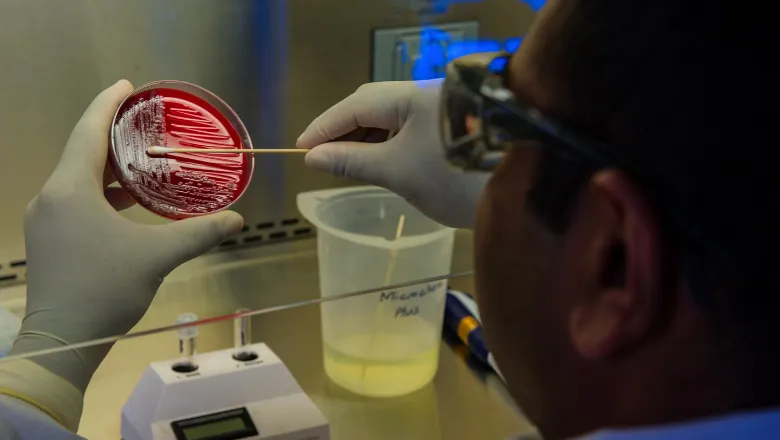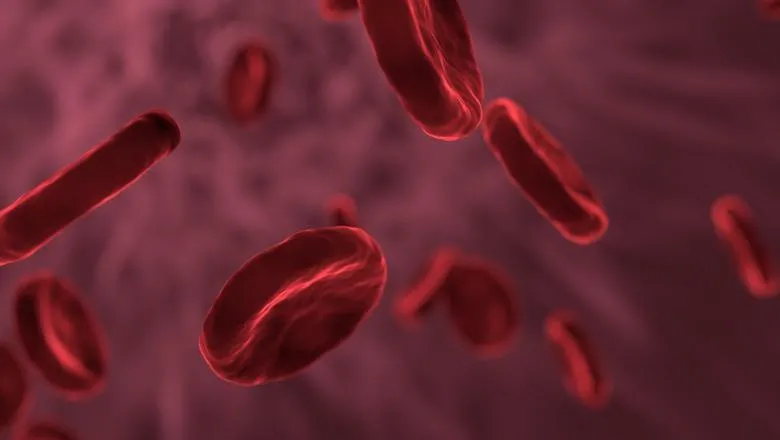
Professor Jonathan Edgeworth
Honorary Professor in Clinical Infectious Diseases and Consultant Microbiologist
Research interests
- Immunology
Contact details
Biography
The Centre for Clinical Infection & Diagnostics Research (CIDR) is a joint initiative established by Kings College London and Guy’s and St Thomas’ Hospital established in 2011. It is embedded within the Directorate of Infection on the St Thomas Hospital campus adjacent to diagnostic microbiology and virology laboratories, clinical infectious disease and infection prevention & control teams and the wards. It hosts between 10 and 15 staff: clinical academics, post-doctoral scientists, healthcare-scientists, research nurses and trainees (including NIHR clinical lecturers & academic clinical fellows during or post PhD/MD fellowships).
Our main focus is to conduct research providing evidence to help control antimicrobial resistance and healthcare-associated infections, particularly by improving the speed and utility of infectious diseases diagnostics. Our core strength is conducting studies involving patients and patient samples (observational/surveillance studies, interventional clinical trials and diagnostic evaluation studies). Linked with these studies we create clinical datasets to develop robust clinical phenotypes that support clinical impact assessments and health economic evaluations and collaborations with local, national and international groups. The co-location of all participants in the translational research pathway is a distinctive success factor. It brings insight into unmet clinical need, early warning for emerging pathogens, the ability to retrieve precious time-critical samples for research studies and to ensure we target benefit of new interventions for patients and clinical teams. Healthcare scientists and clinical users are core members of the research team throughout, so that SOPs, quality assurance, laboratory workflow, ISO accreditation, clinical utility and cost-effectiveness assessments can be considered from the start to support rapid translation into service and patient benefit.
For many years the focus was S. aureus/MRSA, C. difficile and PCR-based diagnostic evaluation studies in the laboratory or at point-of-care. It is now increasingly Multi-Drug Resistant Gram-negative bacteria (MDR-GNB), and evaluation of new technologies particularly long-read, real-time genetic sequencing using nanopore technology. In 2016 we also opened an MHRA licenced Faecal Microbiome Transplantation service & research facility, which provides material for an increasing number of research studies and patients with recurrent C. difficile infection (>100 patients treated with over 90% success). We are currently developing a new acute respiratory infection research theme working with critical care services and collaborators at Public Health England. Priorities include implementation of rapid diagnostics for known, emerging and novel viral and bacterial pathogens including targeted arrays and metagenomic approaches. A particular need is to support the critical care Extra Corporeal Membrane Oxygenation (ECMO) service, which sees over 200 patients a year, and the recently commissioned on-site respiratory High Consequence Infectious Diseases centre that opened in 2018.
News
Quick antibody tests may reliably diagnose COVID-19 in hospitals, study finds
Scientists have shown that affordable, quick and easy-to-use disposable antibody tests reliably detect antibodies against novel coronavirus particularly if...

Research shows 80% drop in ICU bloodstream infections
Bloodstream infections acquired in UK Intensive Care Units (ICUs) reduced by 80% between 2007 and 2012, according to research by members of the School of...

News
Quick antibody tests may reliably diagnose COVID-19 in hospitals, study finds
Scientists have shown that affordable, quick and easy-to-use disposable antibody tests reliably detect antibodies against novel coronavirus particularly if...

Research shows 80% drop in ICU bloodstream infections
Bloodstream infections acquired in UK Intensive Care Units (ICUs) reduced by 80% between 2007 and 2012, according to research by members of the School of...

